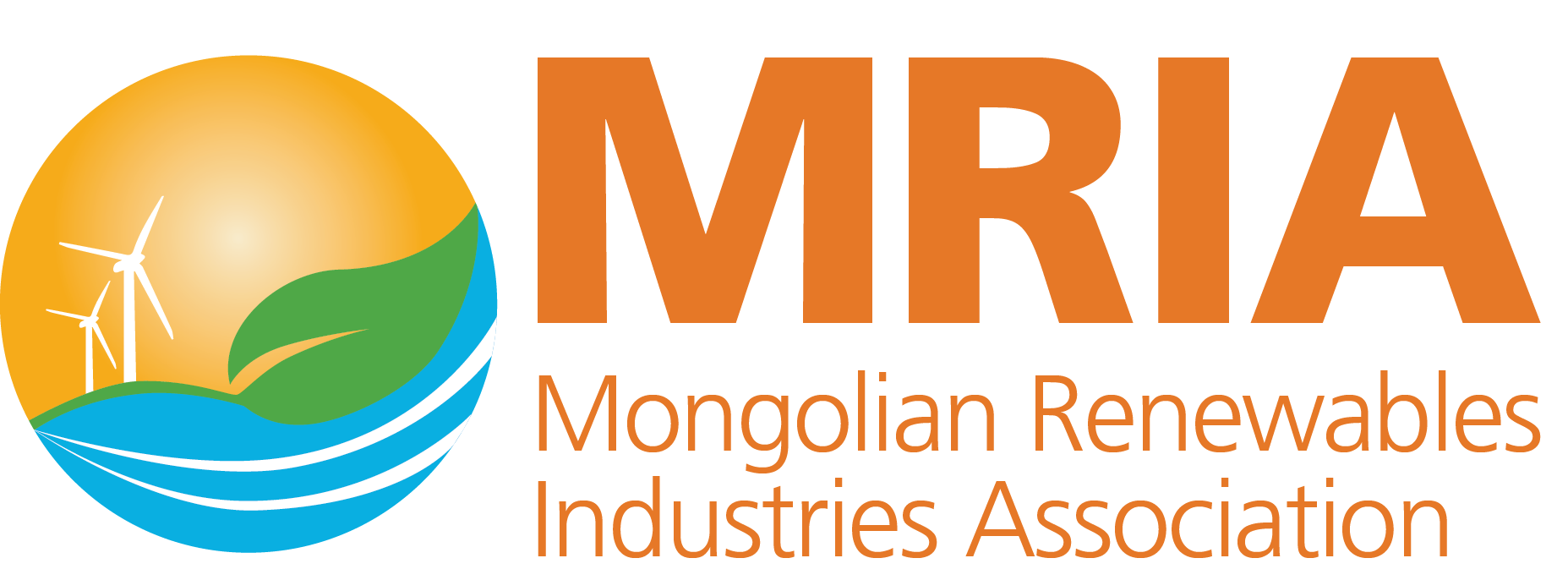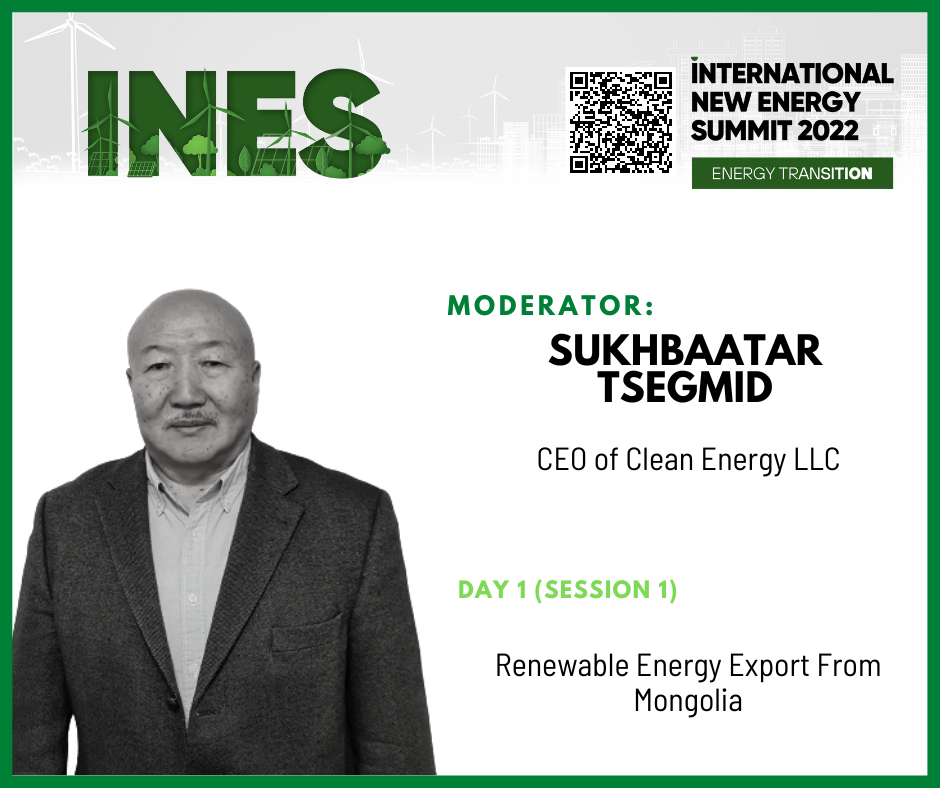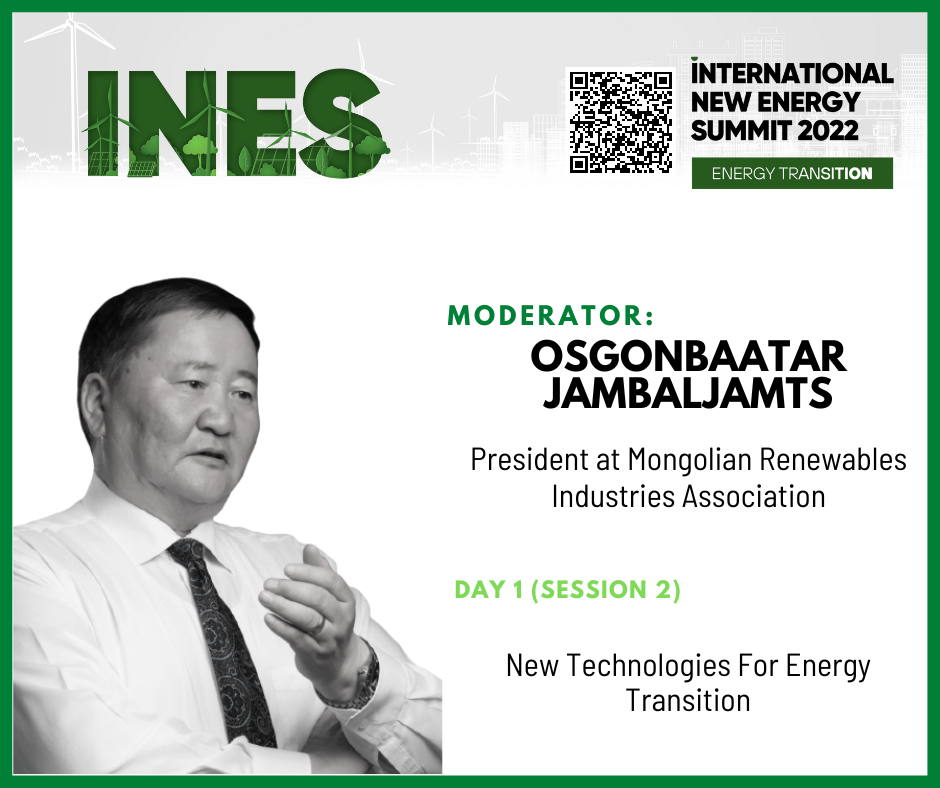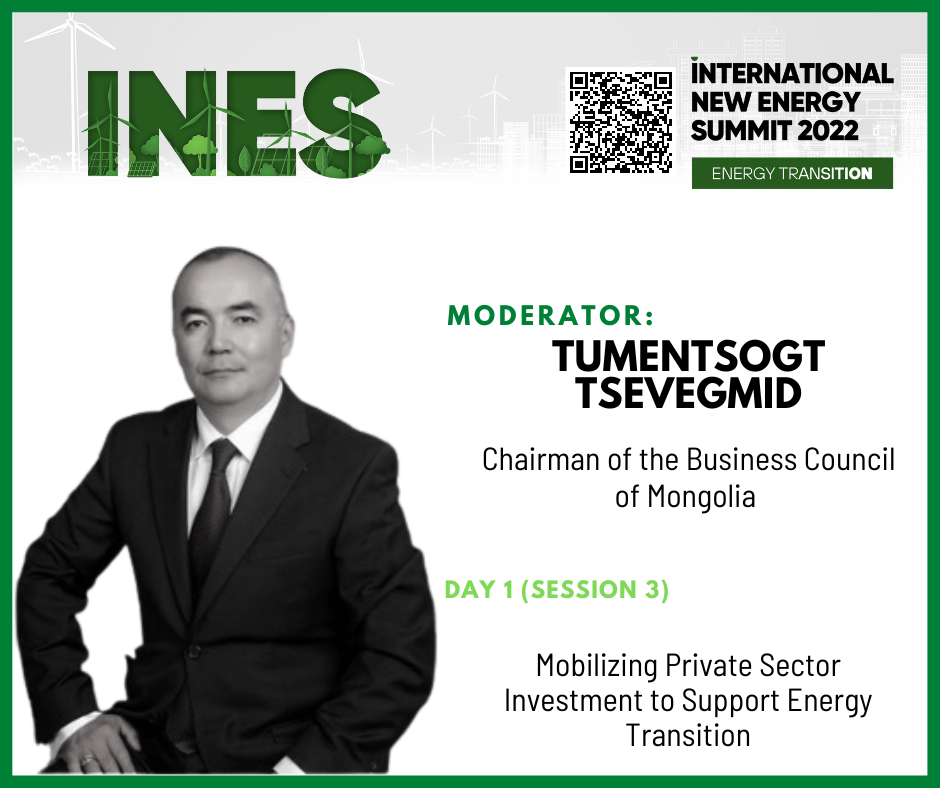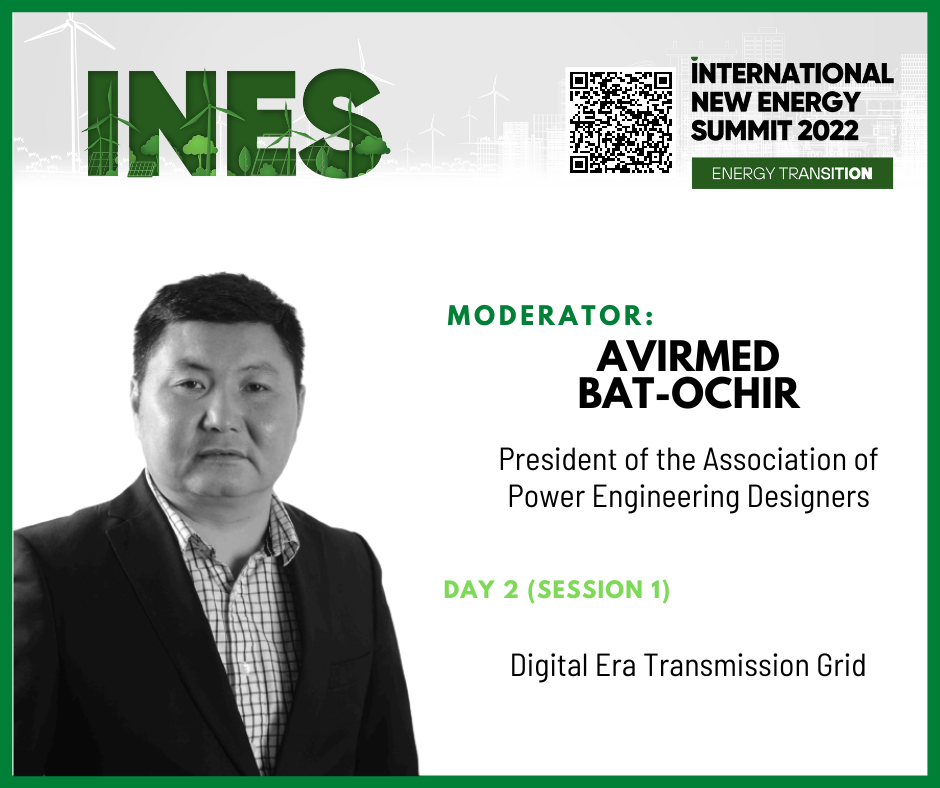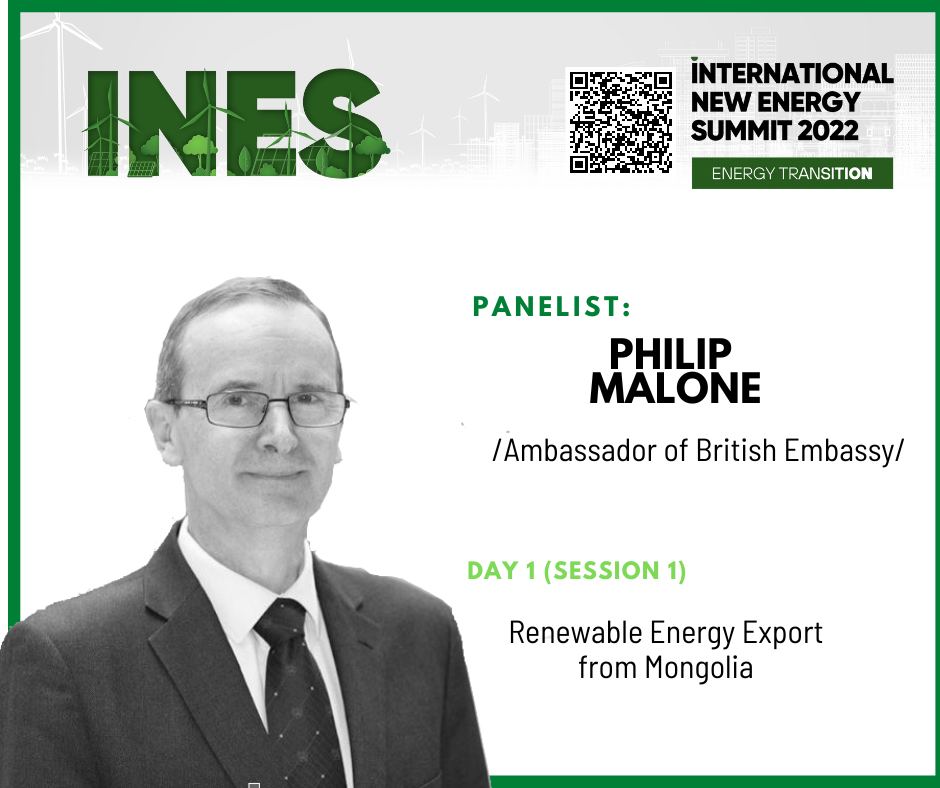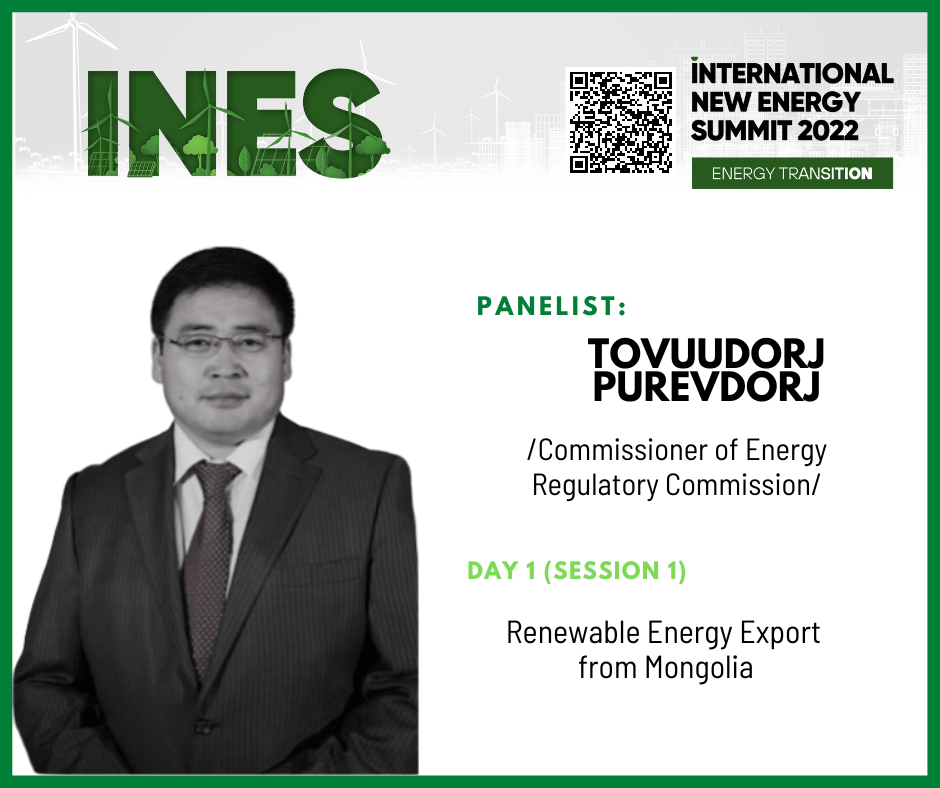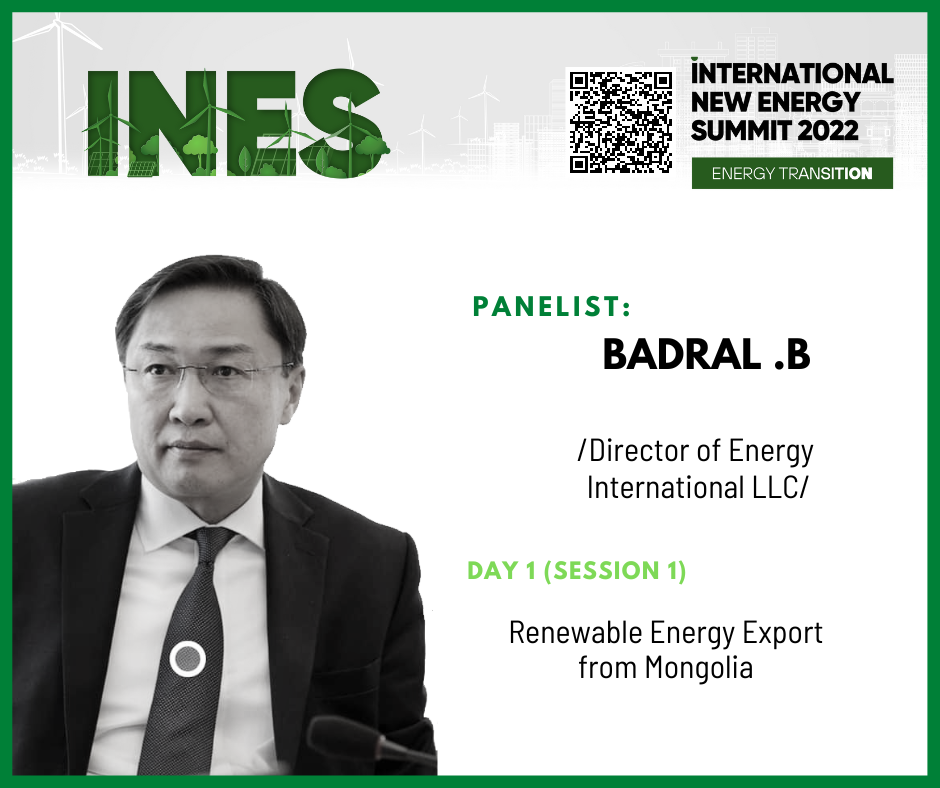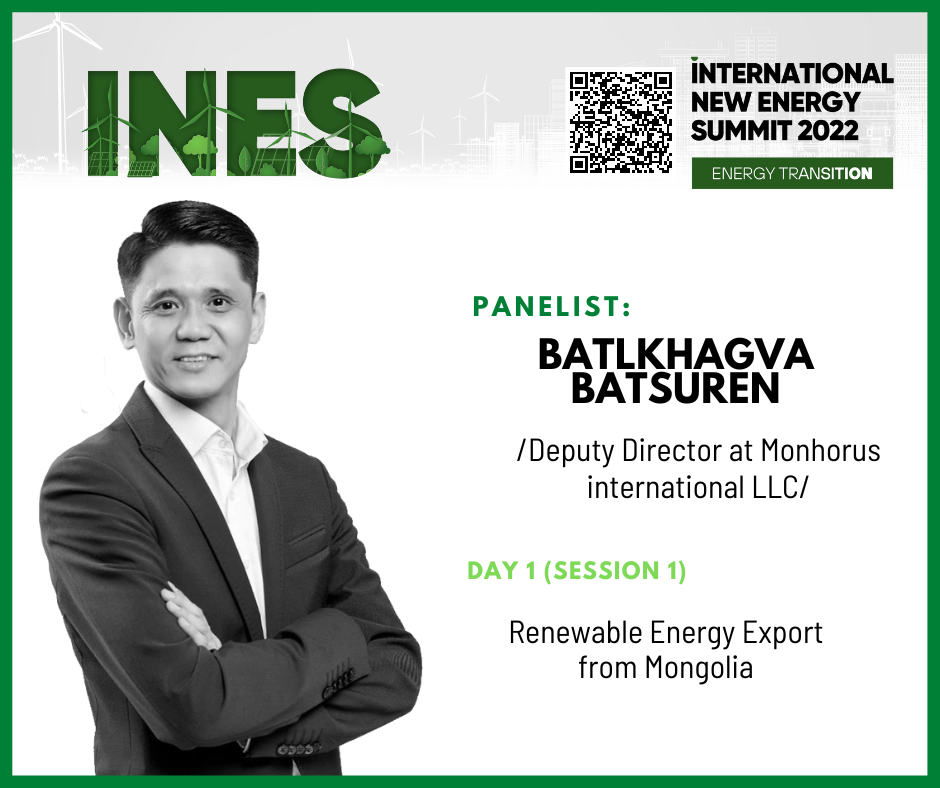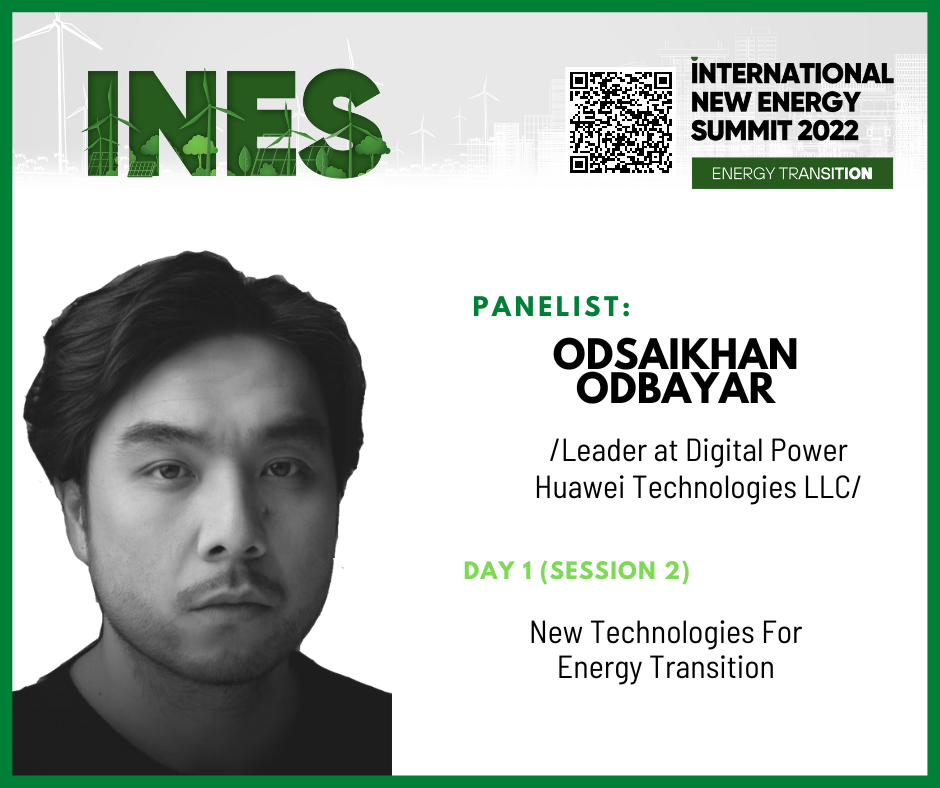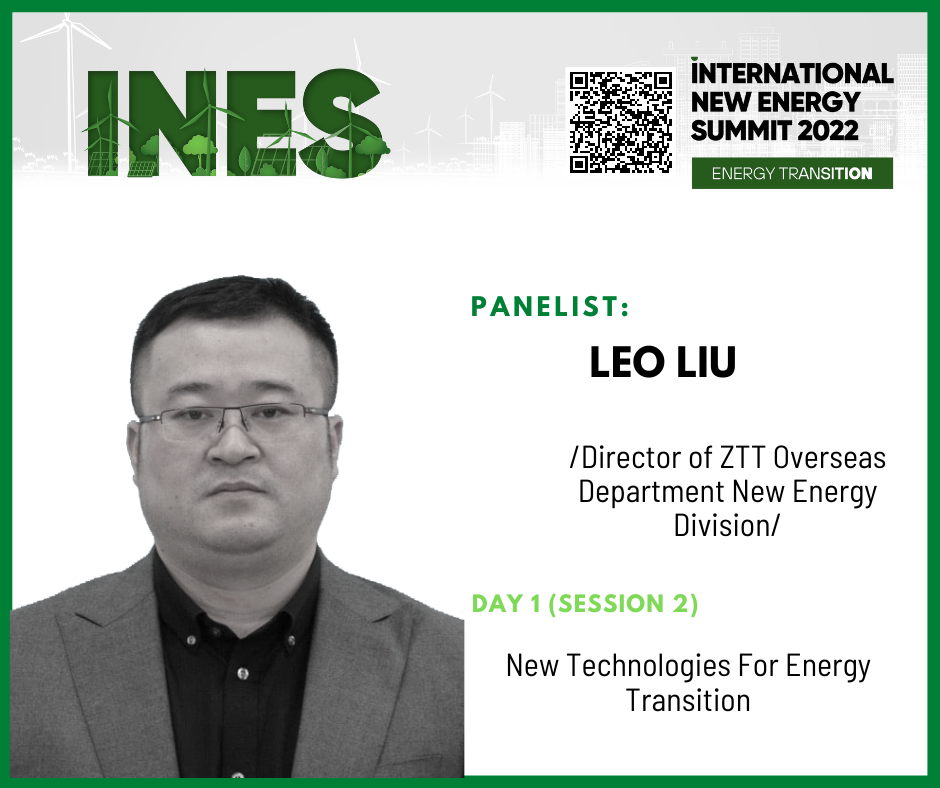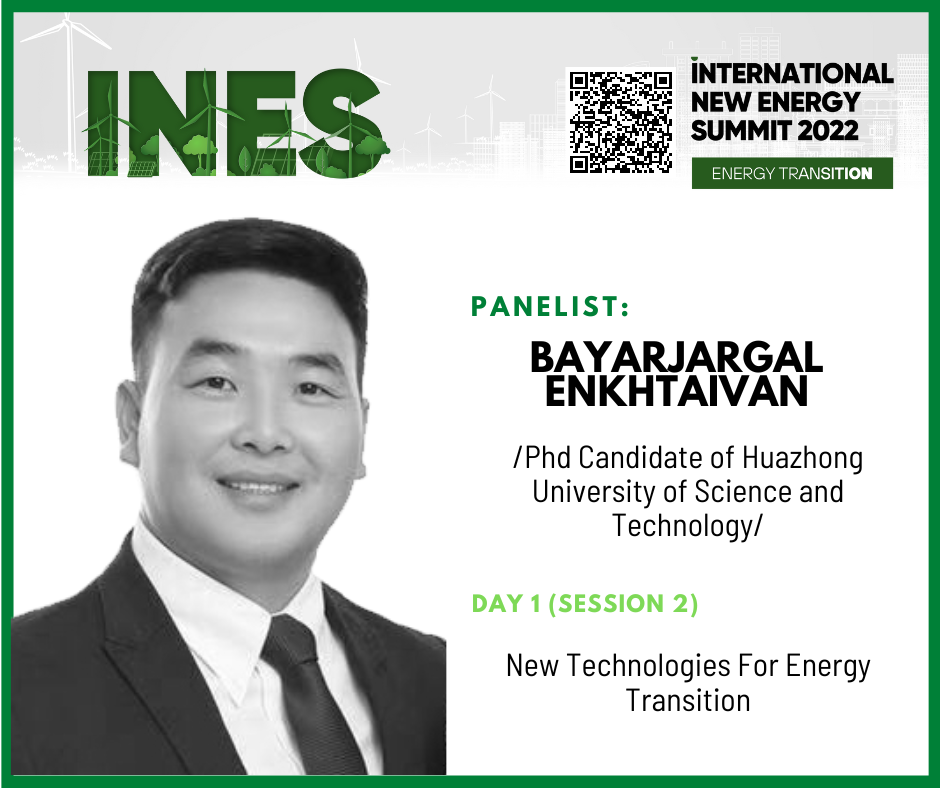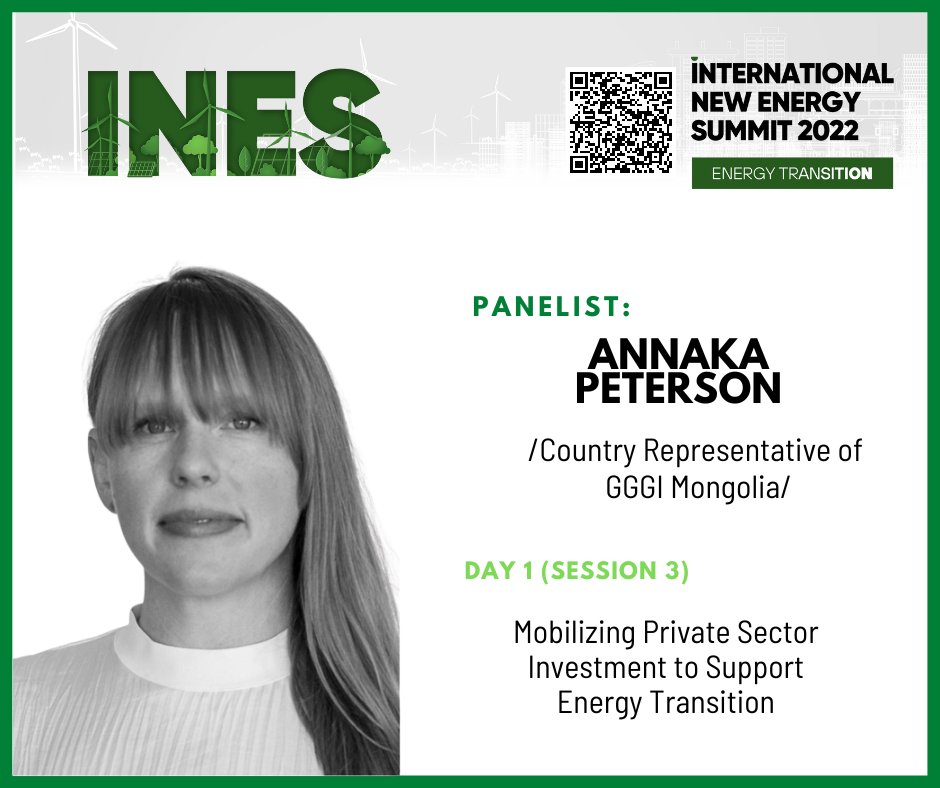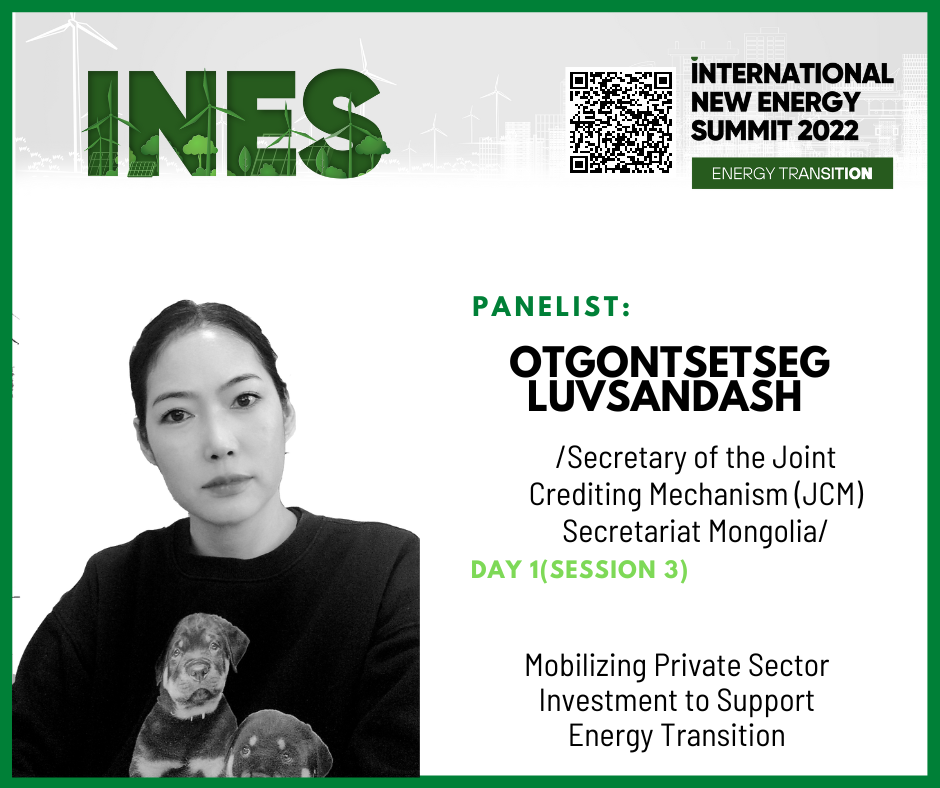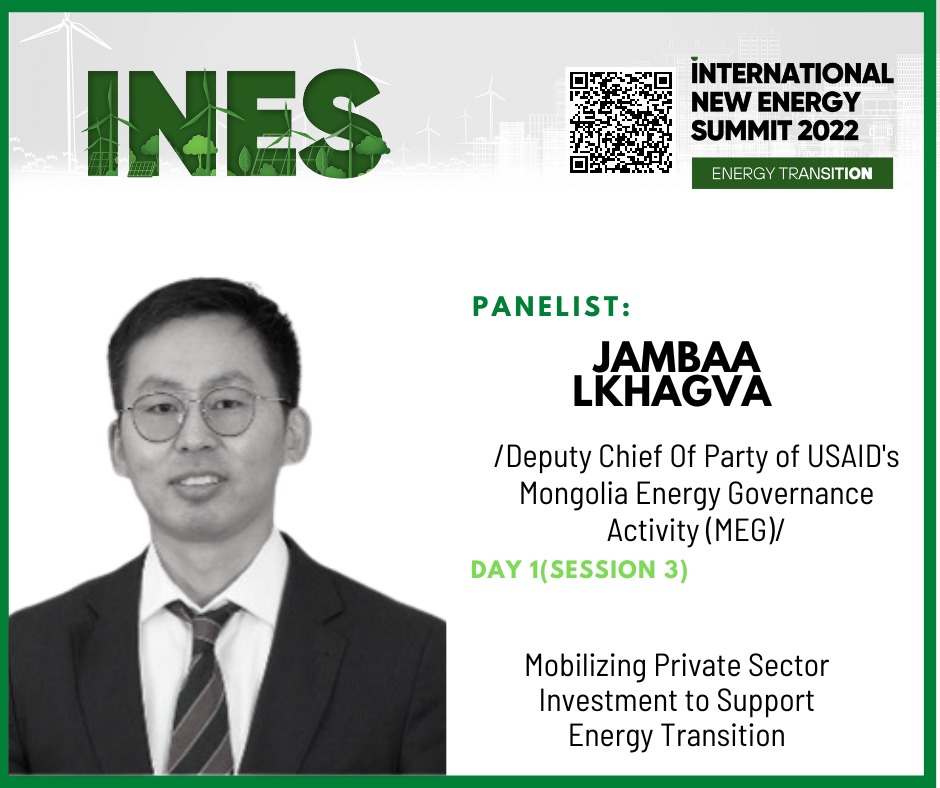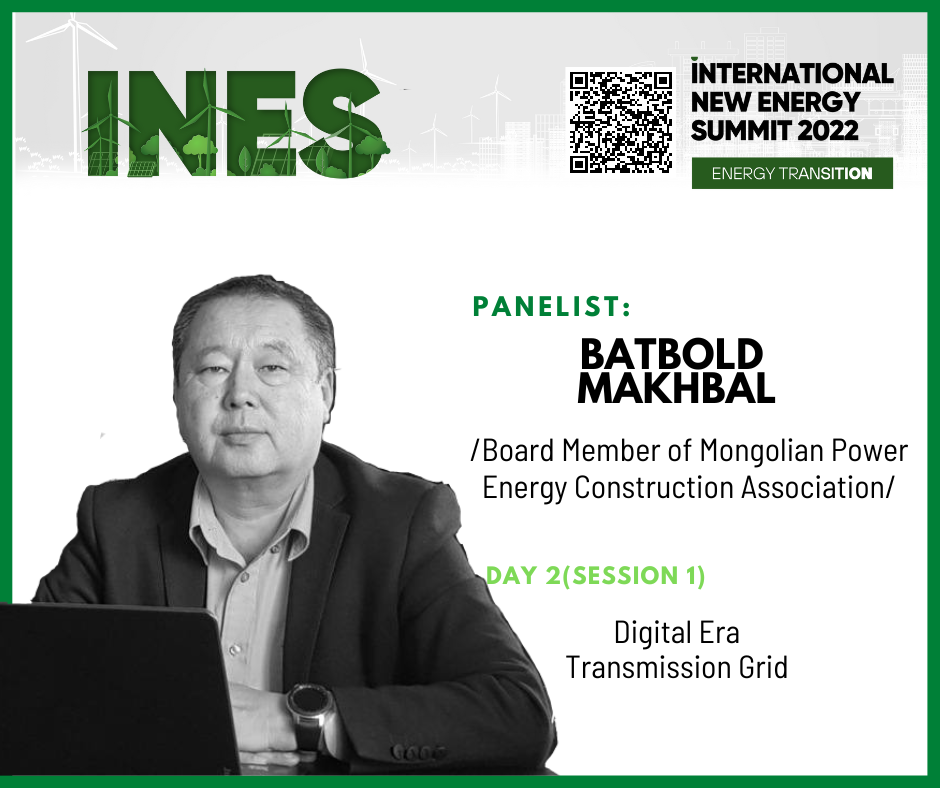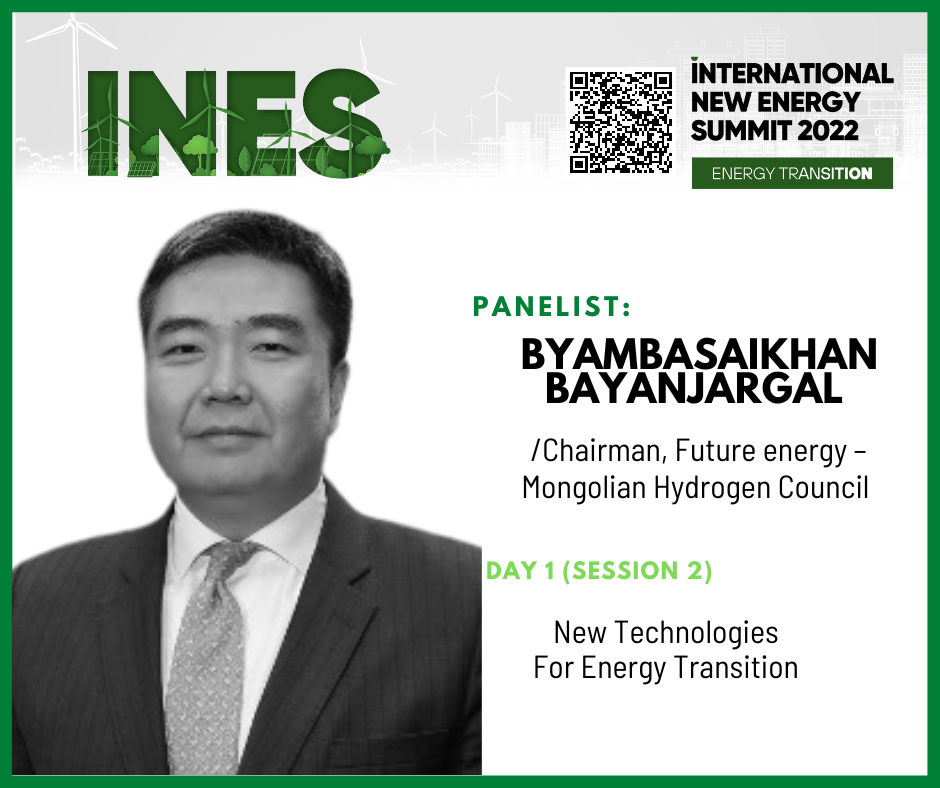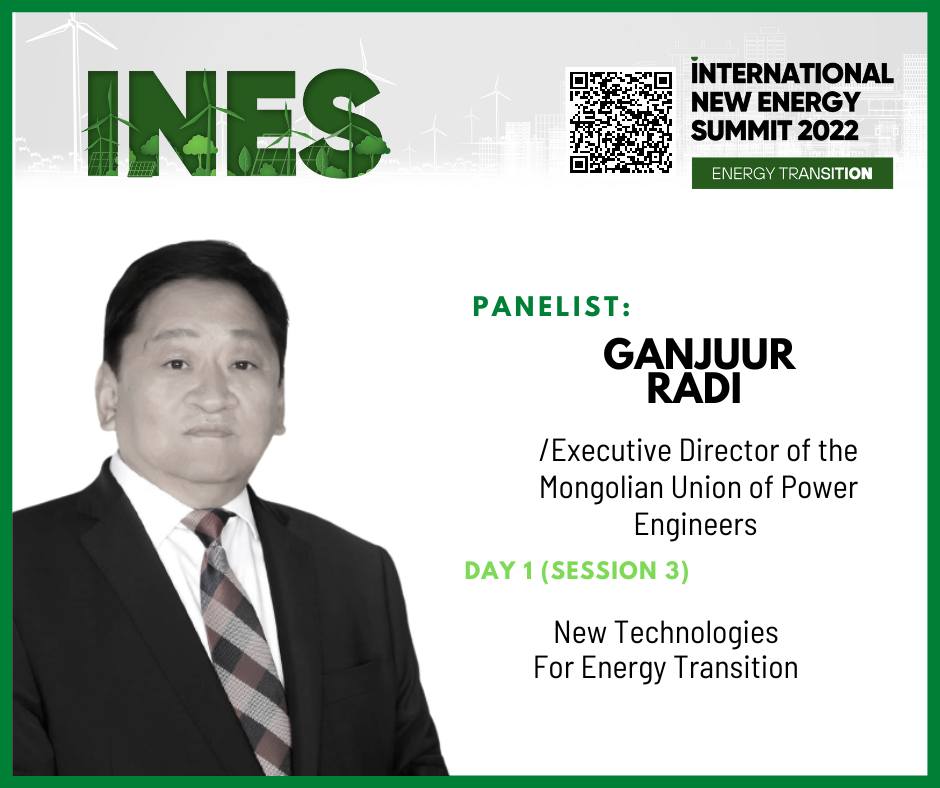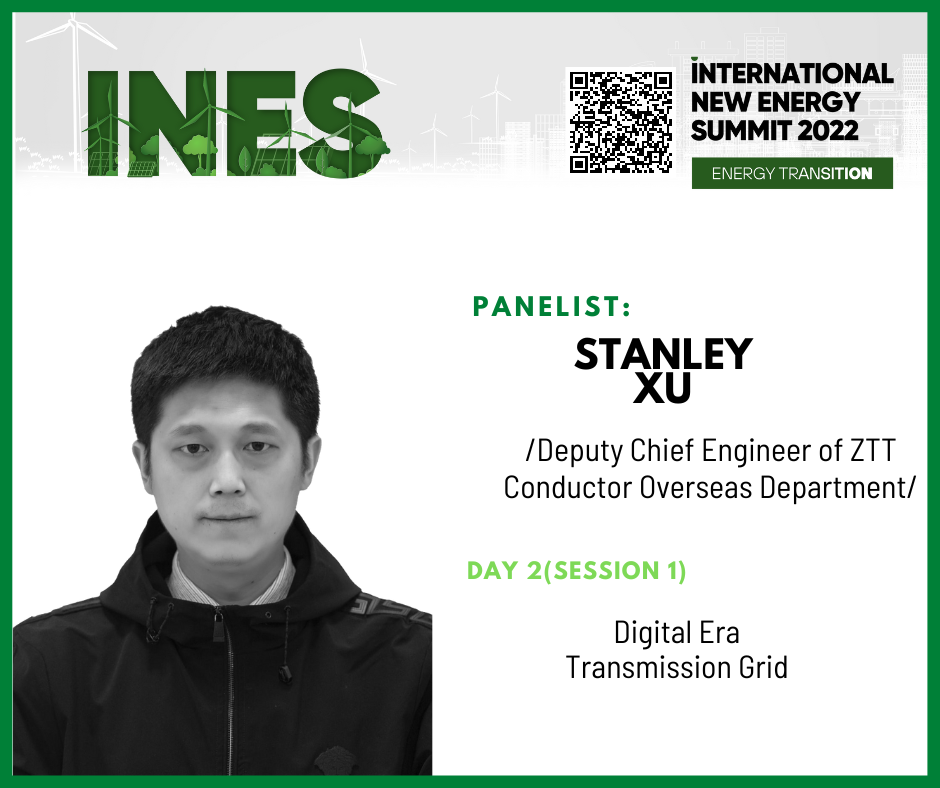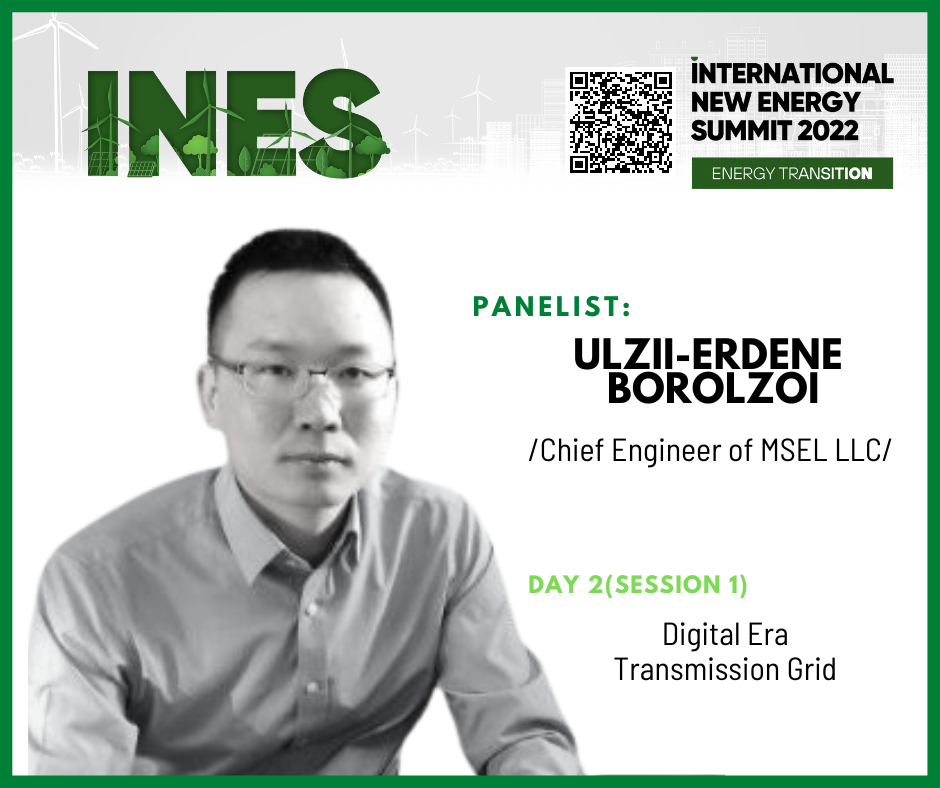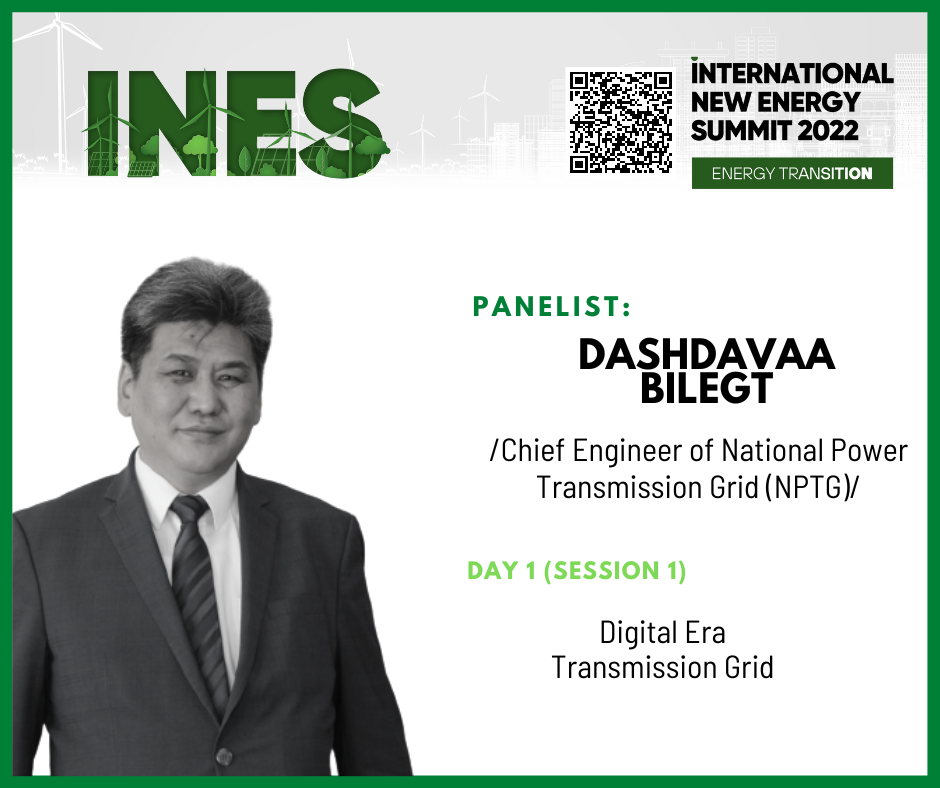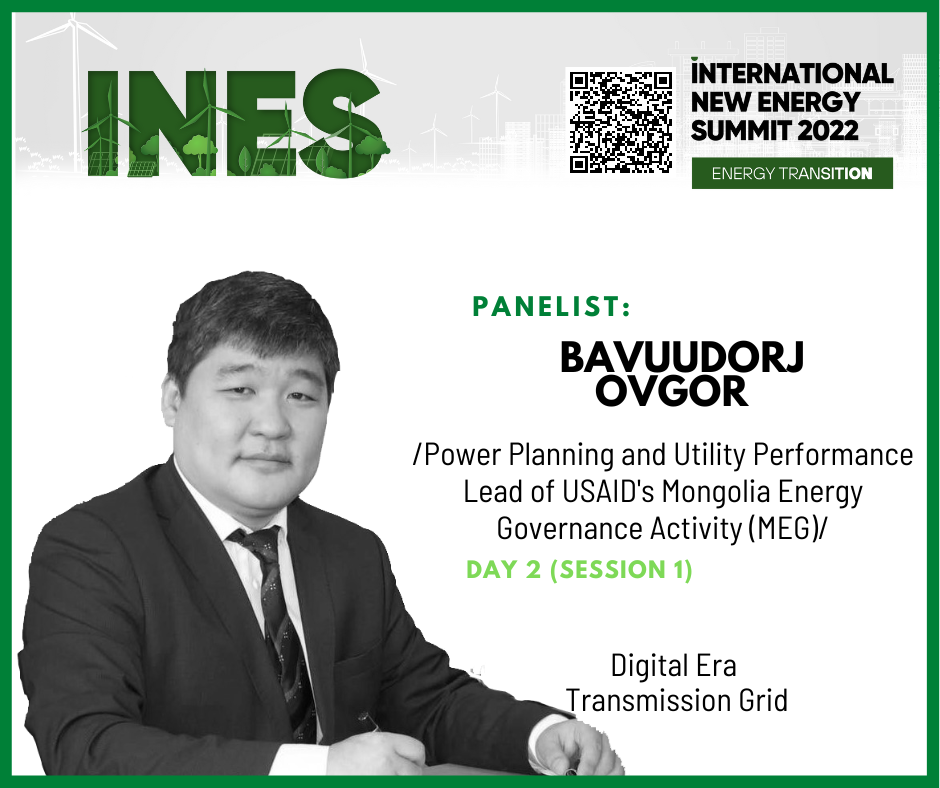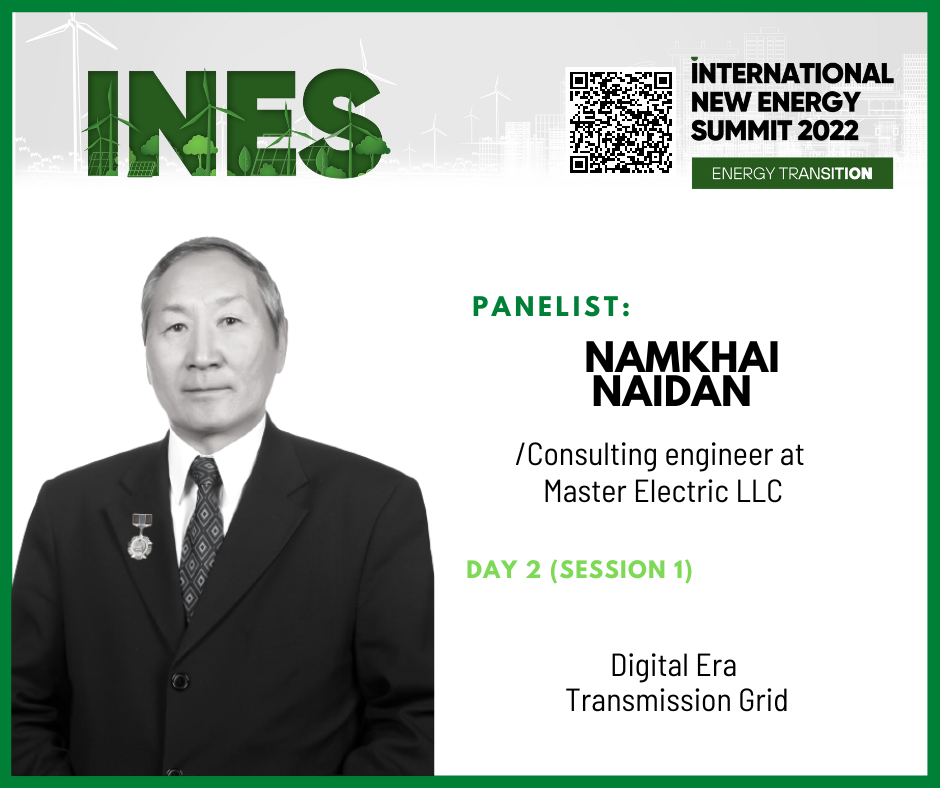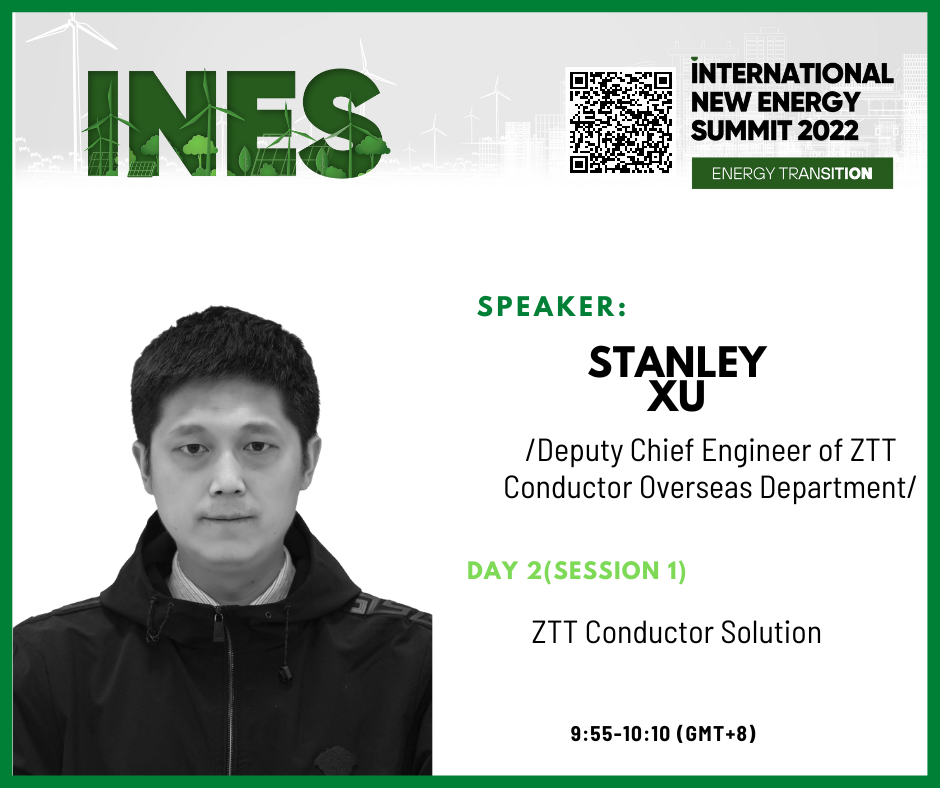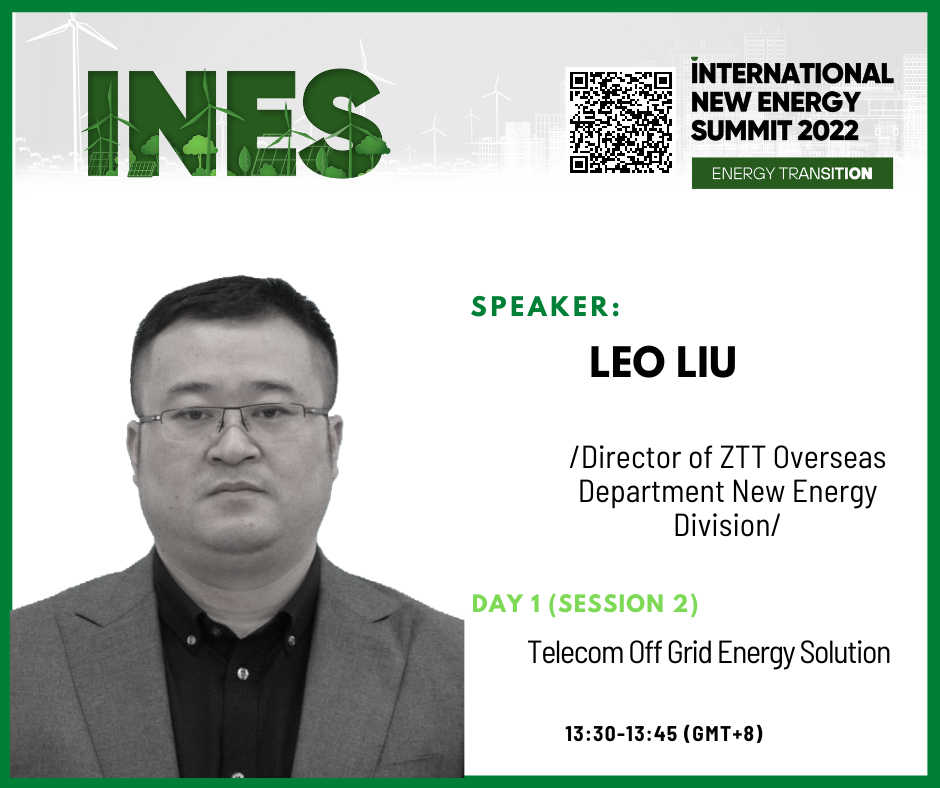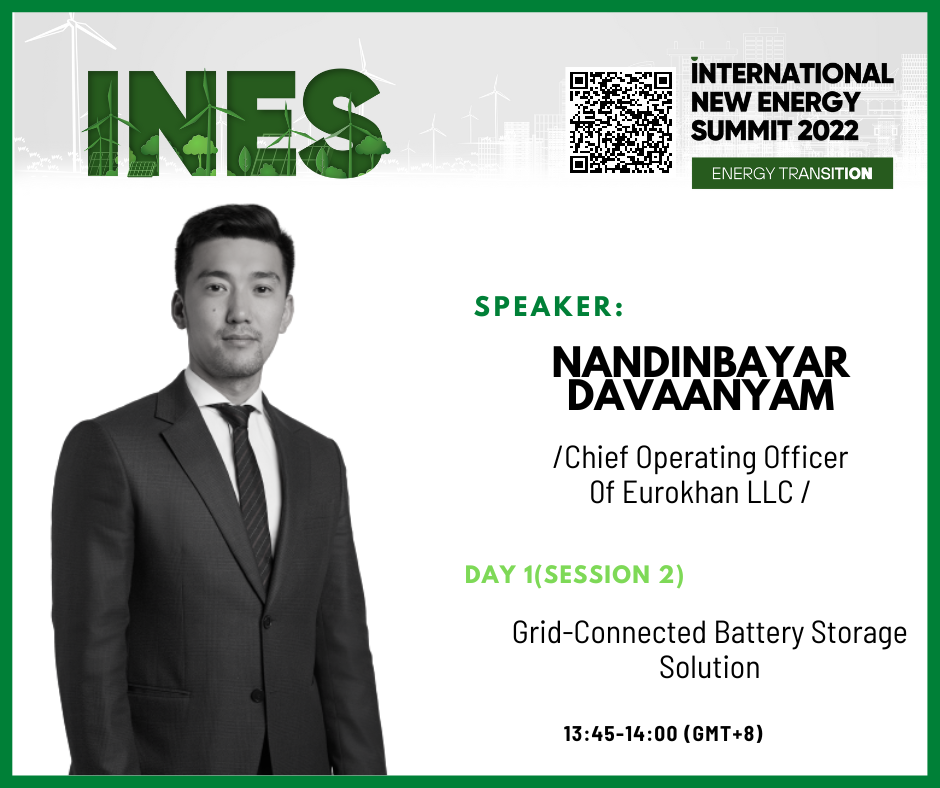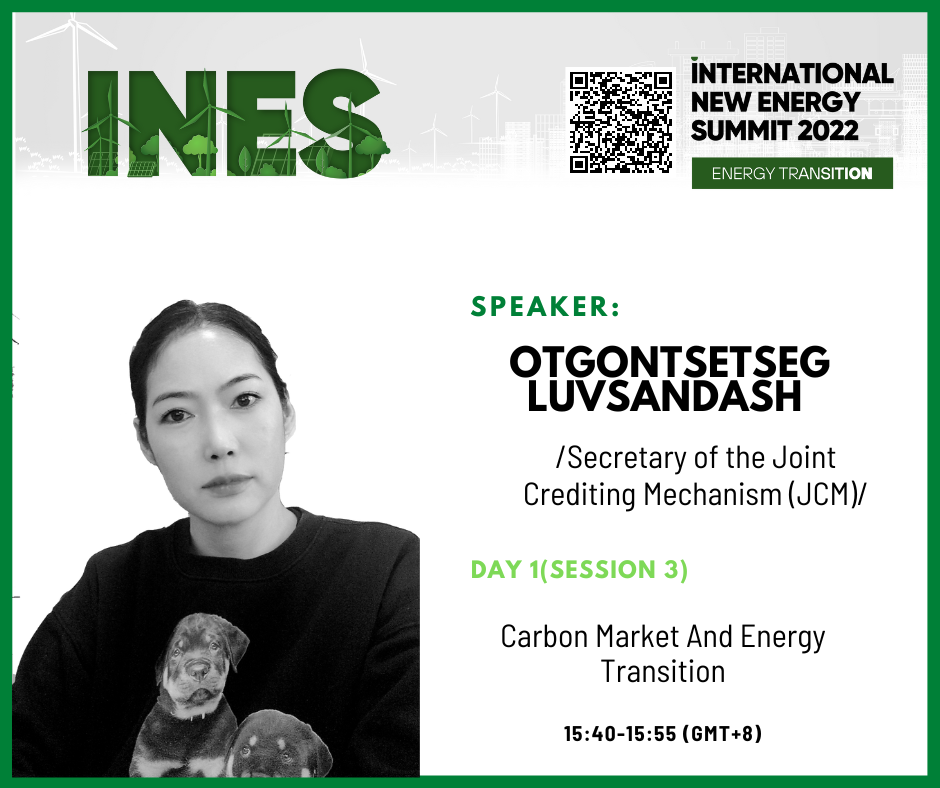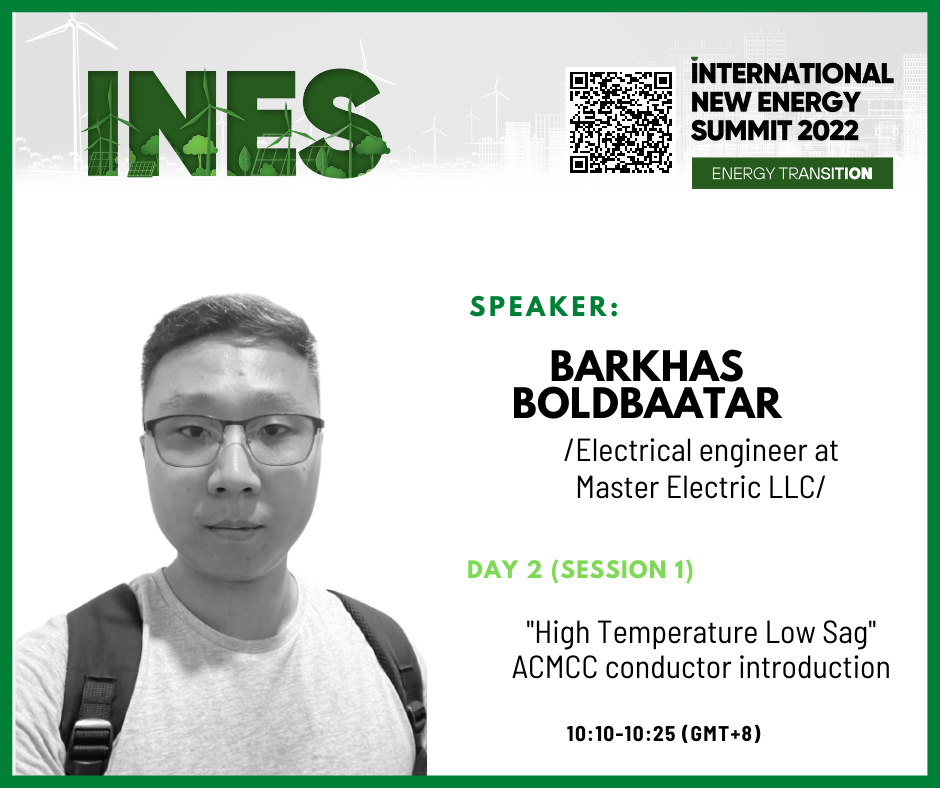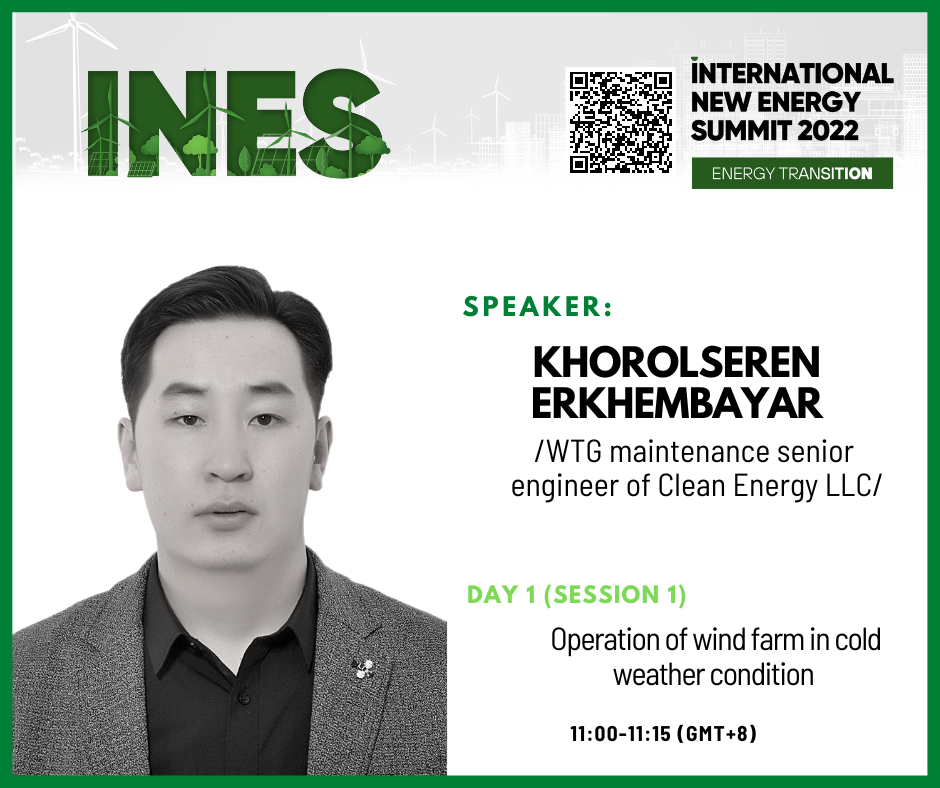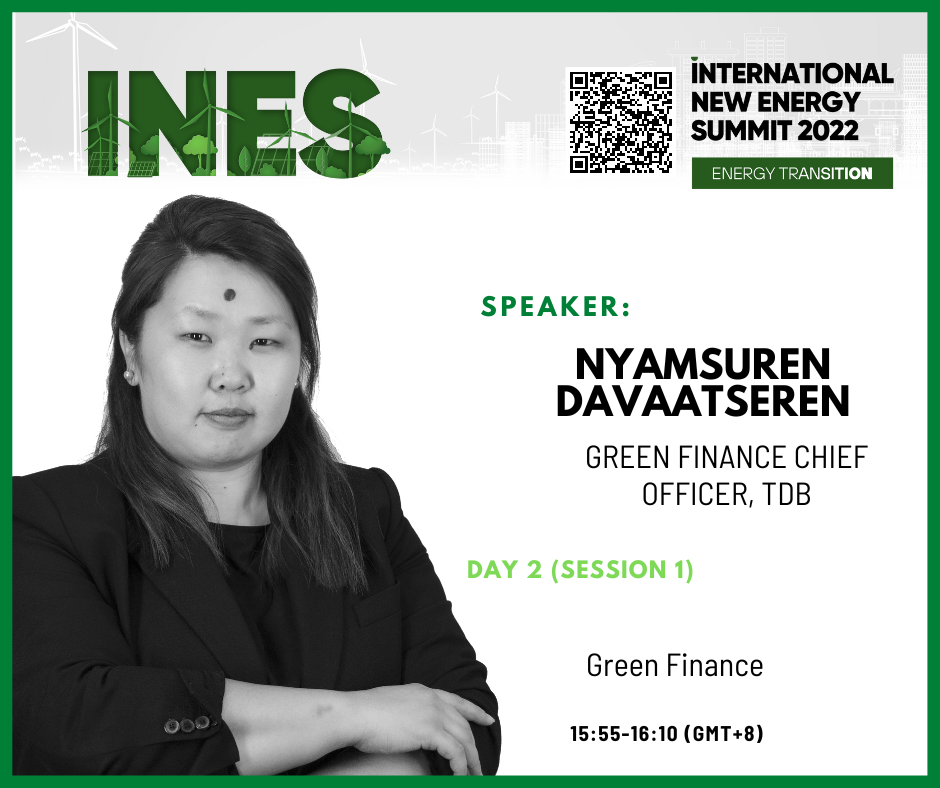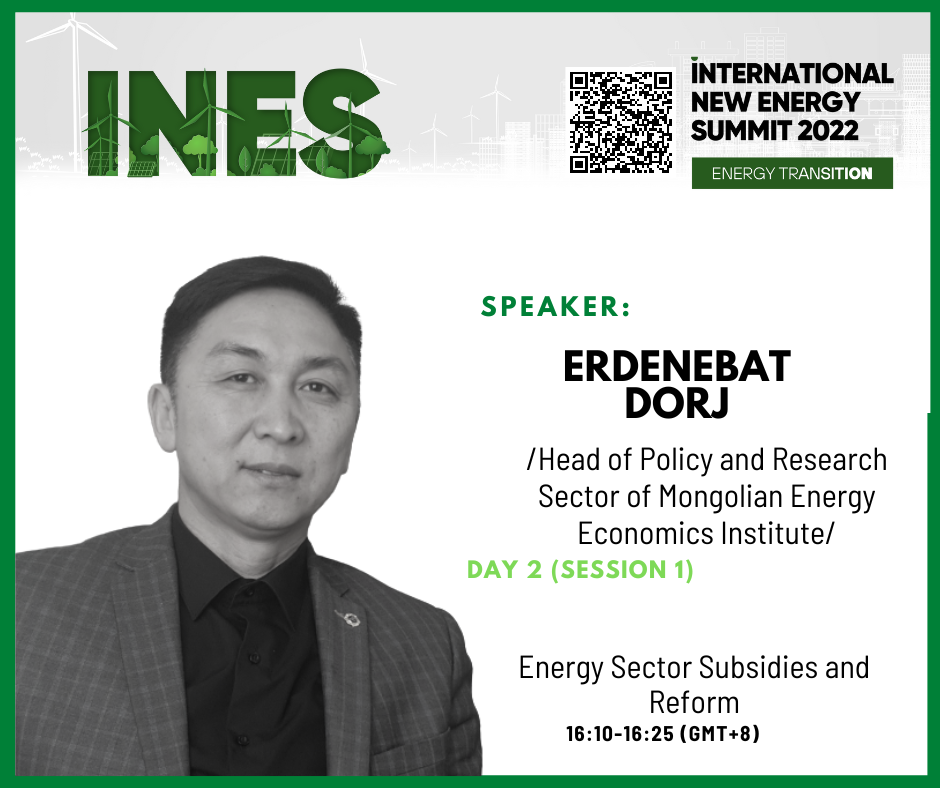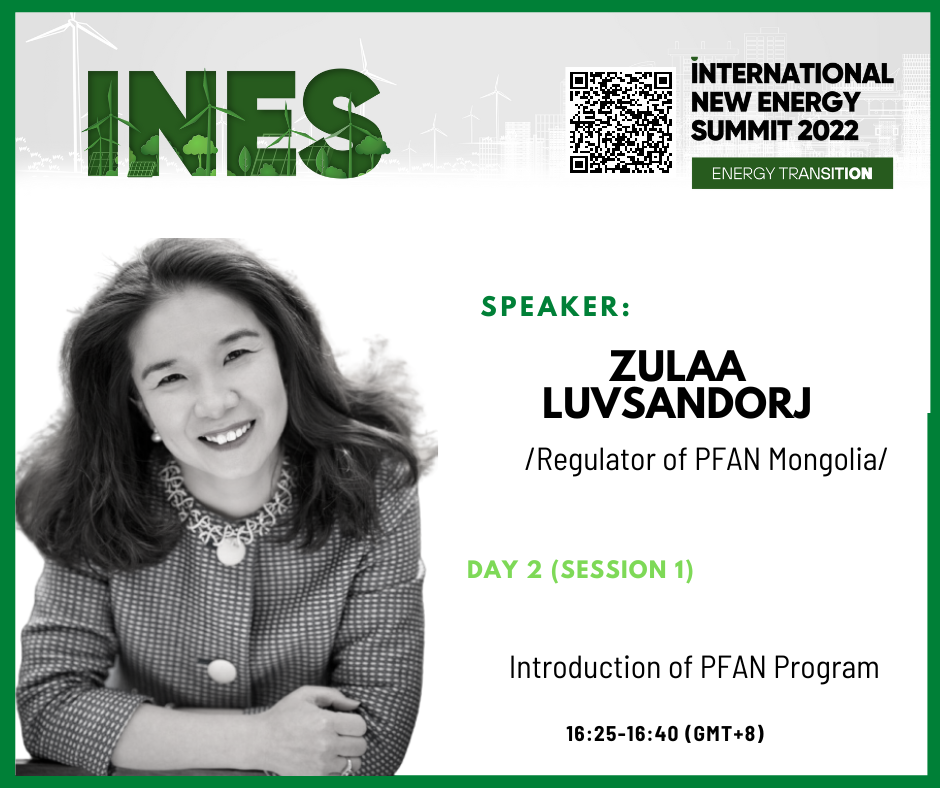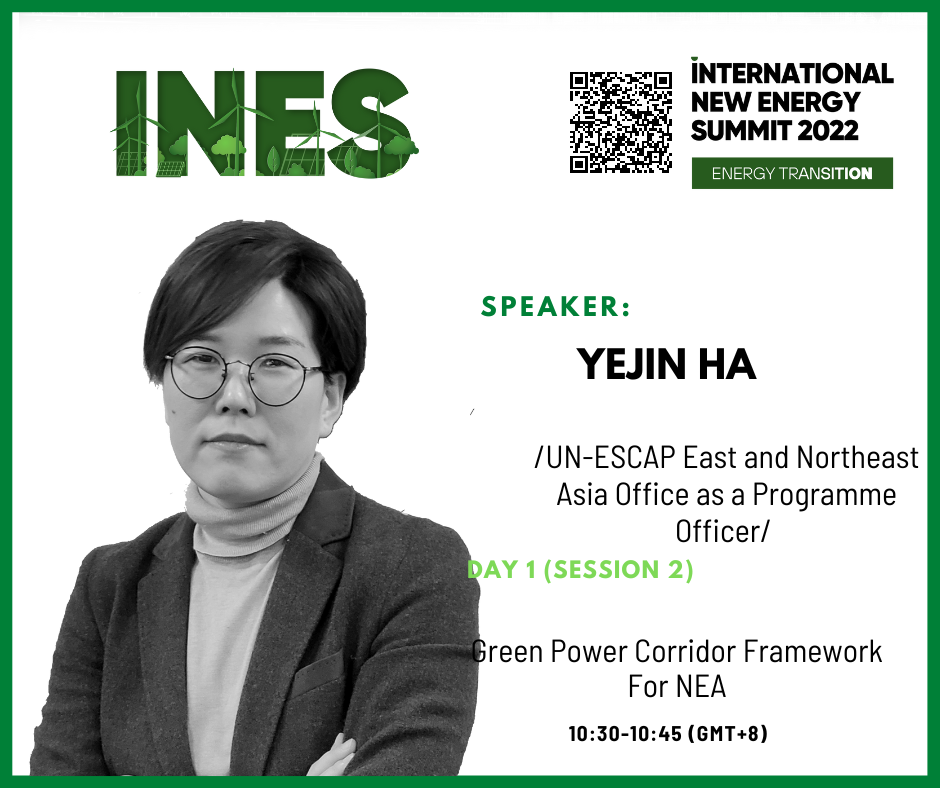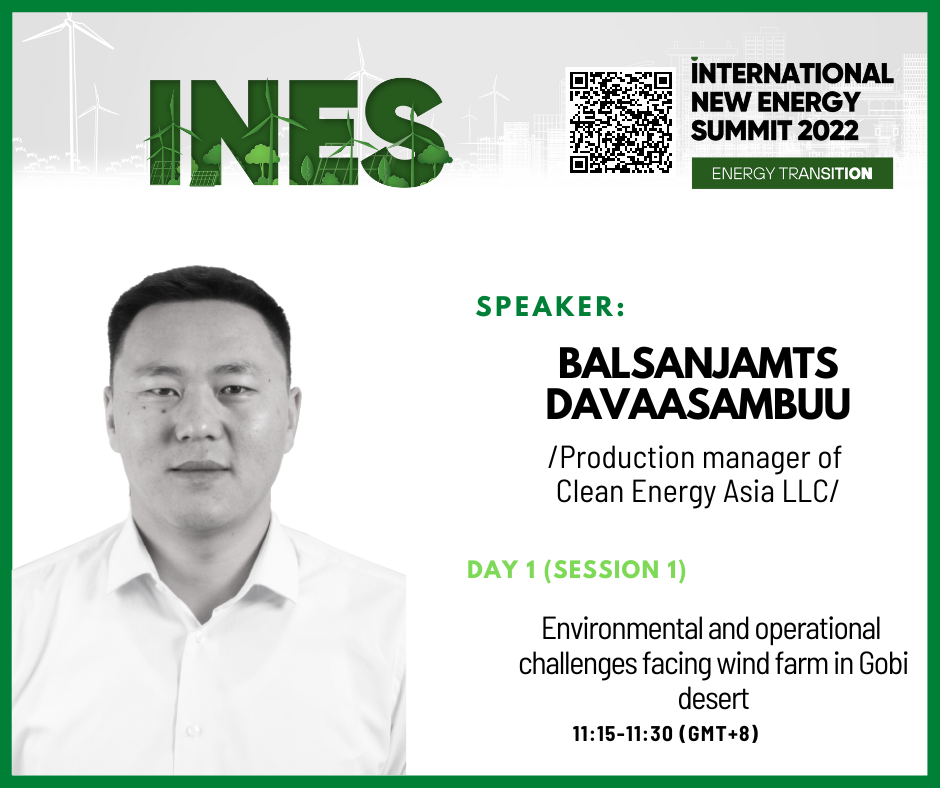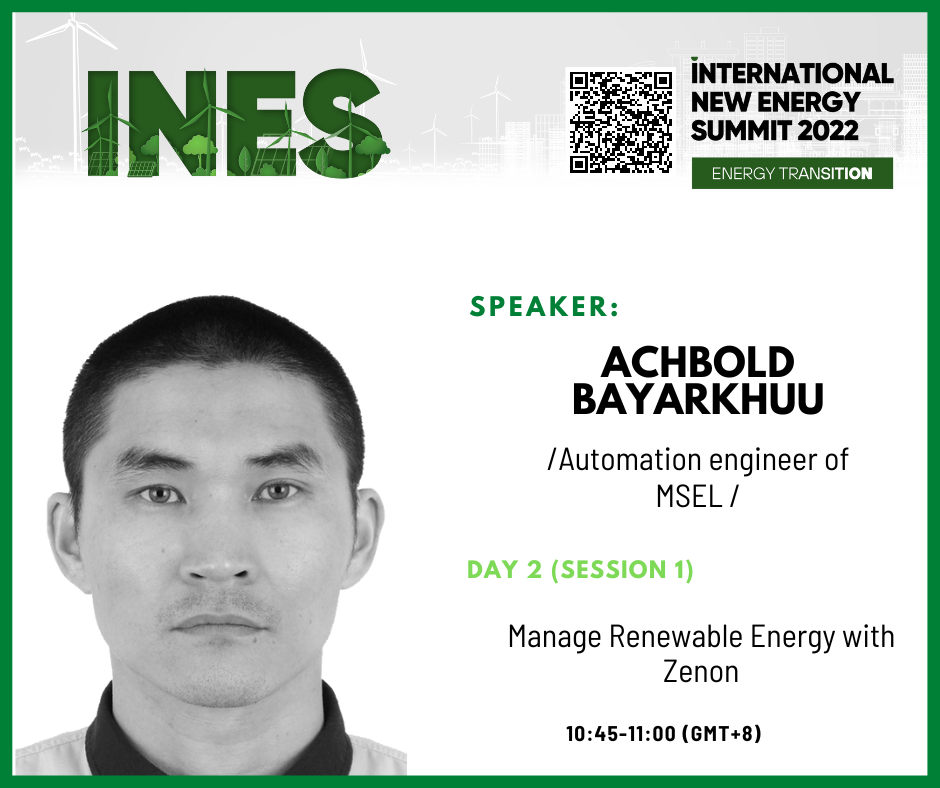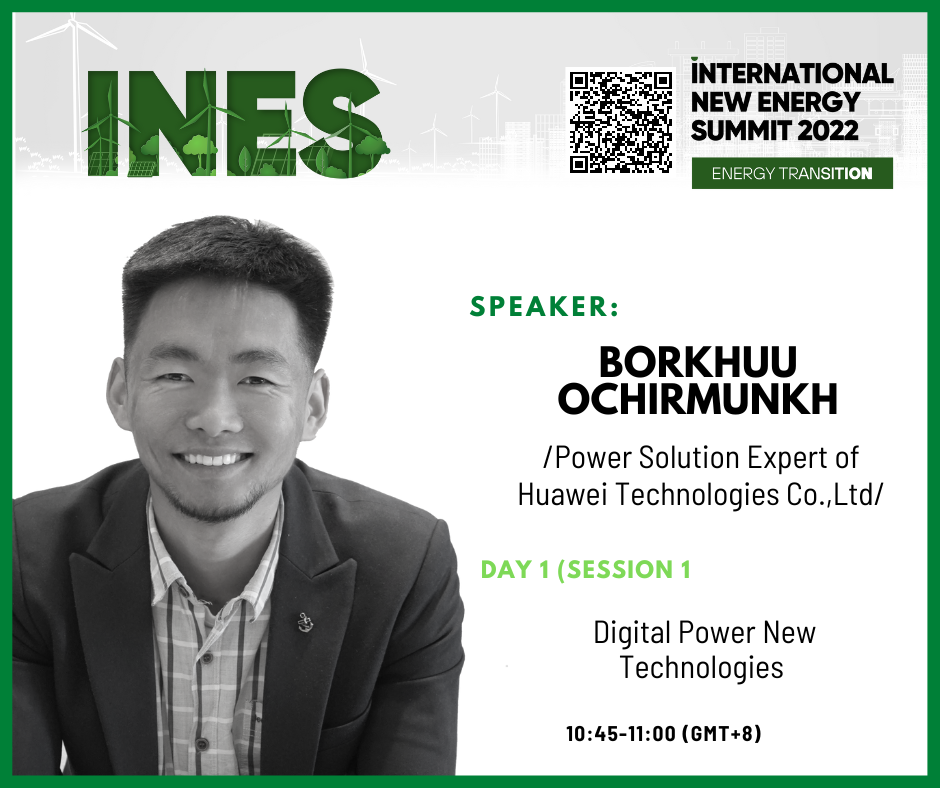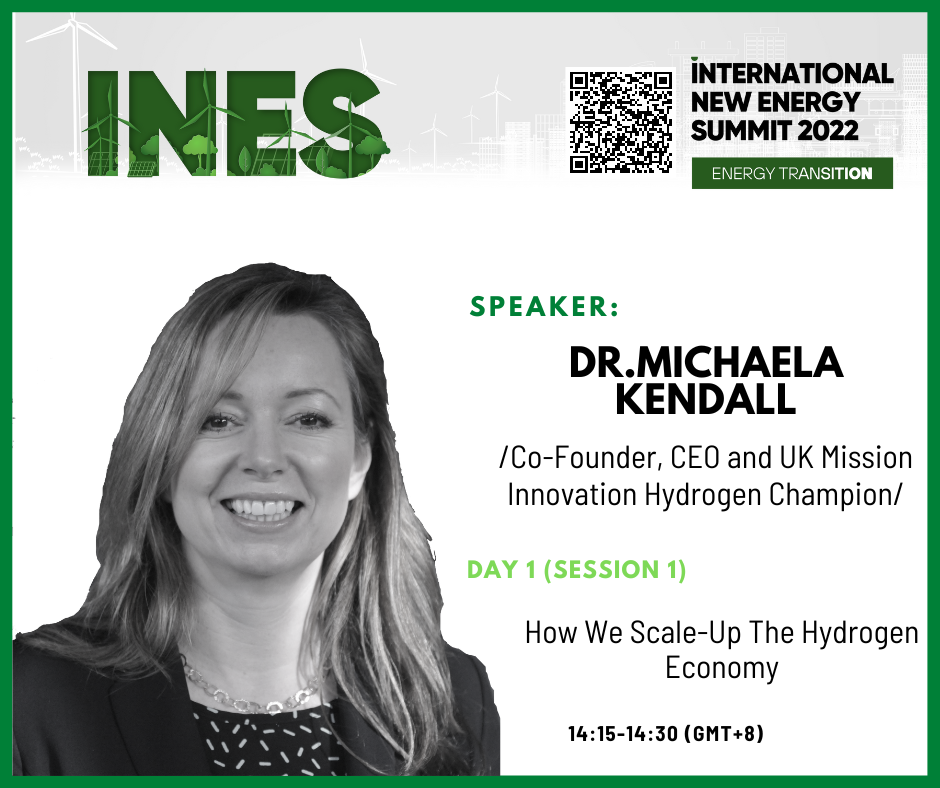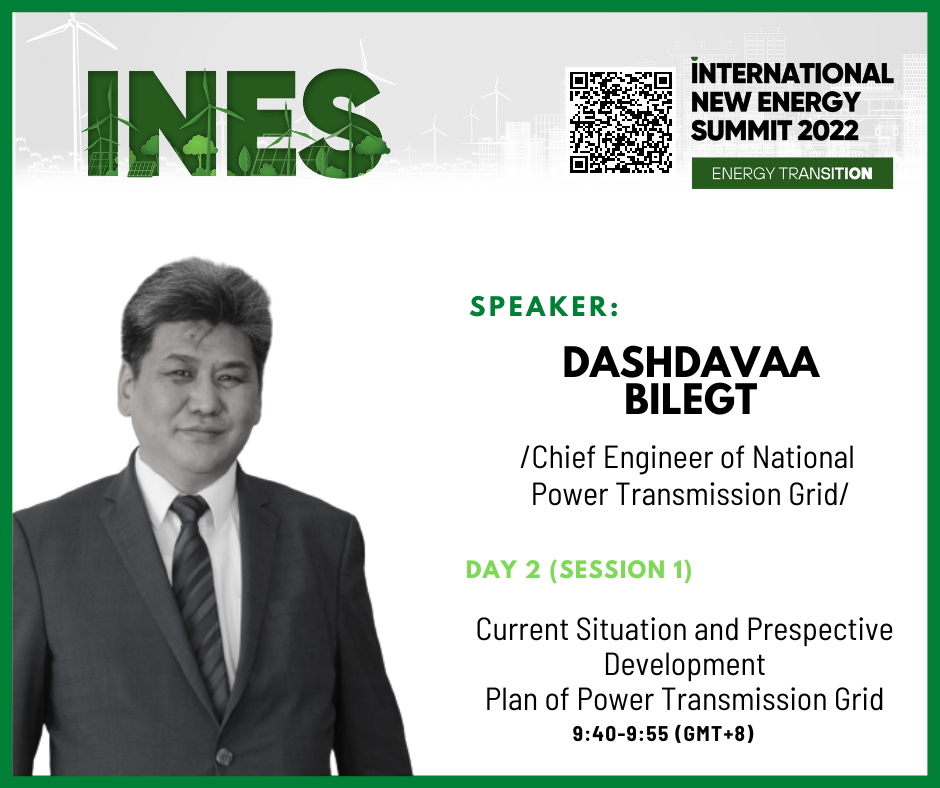
INTERNATIONAL NEW ENERGY SUMMIT 2022
The International New Energy Summit, organized annually by the MRIA, was successfully held on September 28-29, 2022, at the Corporate Convention Center under the theme 'Energy Transition.'
The conference was jointly organized by the GGGI Mongolia and the United Nations, with financial support provided by China's ZTT Electric Cable Manufacturing Company, Master Electric LLC, and members of the MRIA.
Our purpose
The twenty-sixth session of the Conference of the Parties (COP 26) to the United Nations Framework Convention on Climate Change (UNFCCC) was held in Glasgow, The United Kingdom between Oct 31 and Nov 12, 2021. The conference was attended by more than 40,000 delegates from about 200 countries, including leaders from 120 countries. As notified during the conference, 154 participating countries have made national contributions, of which about 90 percent have already set the Net-zero goal. This equals over 80 percent reduction of global greenhouse gas emission. It should be noted that China, South Korea, and Japan are the three main markets in Northeast Asia.
According to a report prepared jointly by the International Renewable Energy Agency (IRENA) and the Korea Institute of Energy Economics (KEEI), the Global Energy Network Development and Cooperation Organization (GEIDCO) forecasts that renewable energy (RE) will be able to provide 80 percent of the total energy consumption by 2050 in Northeast Asia.
This will require a total of 990 GW of RE sources’ development. This is forecasted to be comprised of REpower plants including hydropower plants with 64.5 GW capacity on the Lena and Amur rivers, solar power plants with 430 GW capacity to utilize solar resources in Okhotsk Sea, Sakhalin Island, the southern Gobi of Mongolia, and in northern China, and wind farms with 510 GW capacity in southern Mongolia and northern China to use the wind resources in that region. This suggests that Northeast Asia will be the fastest-growing new market for renewable energy over the next 30 years.
Mongolia has set a national goal “To reduce greenhouse gas emissions by 22.7 percent by 2030 compared to 2010 levels,” which could be increased to 27.2 percent. The President of Mongolia, U.Khurelsukh, officially stated at the COP26 to the UNFCCC that it is necessary to launch the “Billion Tree” national movement and accelerate the development of renewable energy in order to achieve the target.
The energy sector has an important role to play in achieving the nationally determined contribution targets and is committed to reducing total greenhouse gas emissions by 49.7 percent by 2030. However, only 10 percent of total domestic energy production came from renewables in 2021. Therefore, it is not so convincing that we would achieve the target successfully.
This year remarks the 100th anniversary of Mongolia's energy sector so the year 2022 is an important year for the sector. Therefore, to celebrate the historic anniversary of the energy sector and contribute to the prosperity of the sector, a new international energy conference will be organized under the theme of “Energy Transition”.
Topics featured
- Energy transition
- Regional energy markets
- Grid capability
- Energy trade and interconnection
- Use of the solar system, solutions, and new technology
- Hydrogen new technology
- Battery storage
- Energy transition investment
- Sustainable implementation of investment
- Effective development of investment within sustainable development goals
- Mid-term planning of the transmission network
- Advantages and disadvantages of the new generation of power transmission line conductors
- An opportunity to make transmission networks smarter and digital
- Renewable energy source interconnection issues
- Issues in energy construction project management
Our goal
The main goal of the forum is to
- Reduce greenhouse gas emissions reduction, Northeast Asia
- Develop renewable energy in the region
- Attracting the interest of international investors
At the conference, more than 400 people, including representatives from government and non-government organizations, as well as renewable energy developers, participated in the event.

